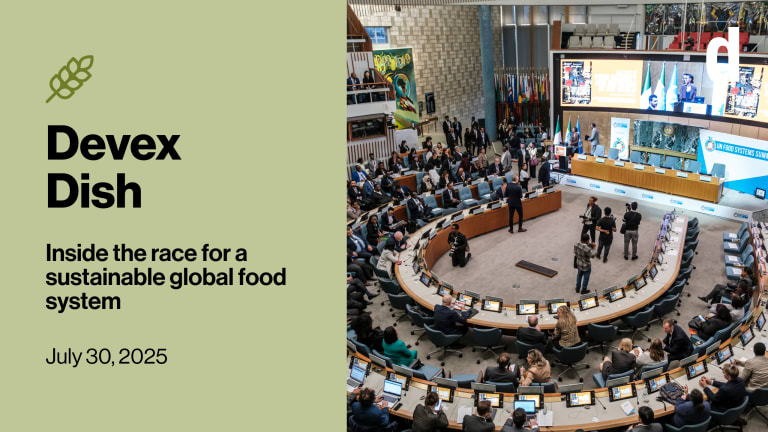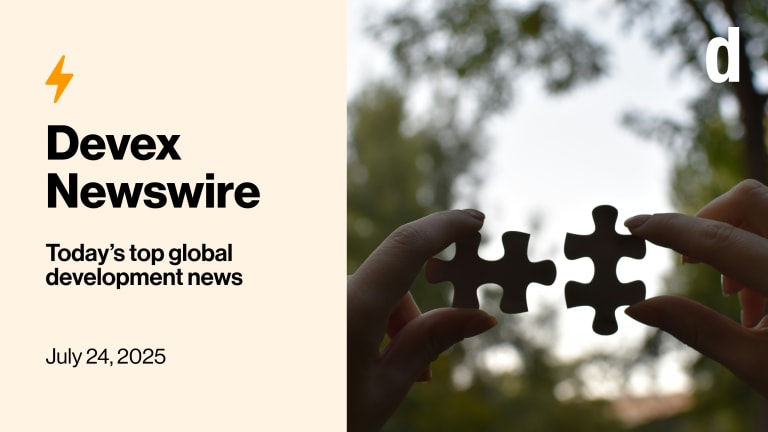
Although worst-case scenarios on the food crisis in the Sahel seem to have been averted, the international community should continue to address the chronic shortage of locally produced food in the region, the United Nations’ top official in the area said Wednesday (Oct. 3).
In a discussion hosted by the Center for Strategic and International Studies, David Gressly stressed the need for donors to pledge “solid” five- or even 10-year commitments to resilience-building programs in the Sahel, which is a way to prevent future food crises from happening.
The latest data from the Financial Tracking Service of the U.N. Office for the Coordination of Humanitarian Affairs, however, show the 2012 consolidated appeal to address food security in the Sahel has only been 64 percent funded.
What factors are preventing the international community from giving full support to the Sahel? World Food Program Executive Director Ertharin Cousin, who spoke to Devex after the Sept. 28 unveiling of a U.N. program on empowering rural women, explained what she believes are the roadblocks. Cousin also told Devex what WFP is doing to overcome security risks in the region and continue to assist those in need.
What are the biggest challenges that you see moving forward in the Sahel?
Let me start by saying that because the global community came together we avoided a famine. And when I say we, I mean the global community in supporting the people of the Sahel. When we began this work earlier this year — and if you remember, it was the president of Niger last year at [the U.N. General Assembly who] raised the alarm about the challenges that they were seeing, that they were forthcoming in the Sahel. But we came together as a global community and we responded. Now the biggest challenge that I see is that because there was no famine we won’t continue to have the support of the global community for the continuing work that needs to happen. We must build resilience so that the people who live in the Sahel, particularly women and their children, are not vulnerable to what is going to be climatic changes through the foreseeable future. We have done great work. We can’t stop.
How do you deal with the security risks when delivering aid? Has food aid ever been intercepted?
We haven’t seen any of that. And we are working with partners, [nongovernmental organization] partners, as well as U.N. partners, as well as the governments of all the countries that we are serving in the Sahel. We are working specifically in northern Mali with local NGOs to assist us in delivery in some of the more challenging areas in northern Mali because of the issues of access. I think our responsibility is to continue to reasonably monitor that the food is reaching those that we are targeting who are in need of assistance.
How can ensuring food security be a tool to create stability in the region?
If we want to create physical security in these places, food security is one of the base ingredients. And so ensuring that, recognizing that there is political instability in the region, that we do see challenges from the continued evolving conflict in northern Mali that is affecting refugee movements into the neighboring countries that could potentially impact those neighboring countries — it is important in those countries, including in Mali, that we maintain the food security of the communities who live in those countries to maintain the political security there.
Check out our New York topic page to see more of our conservations with other global development luminaries who were in the city for U.N. week.








